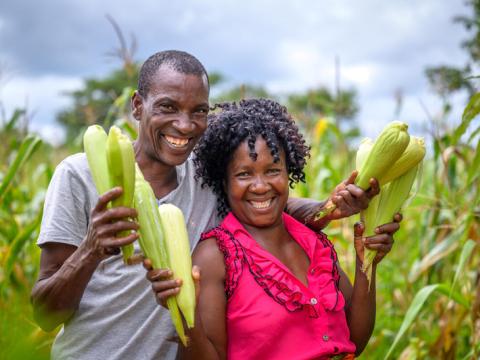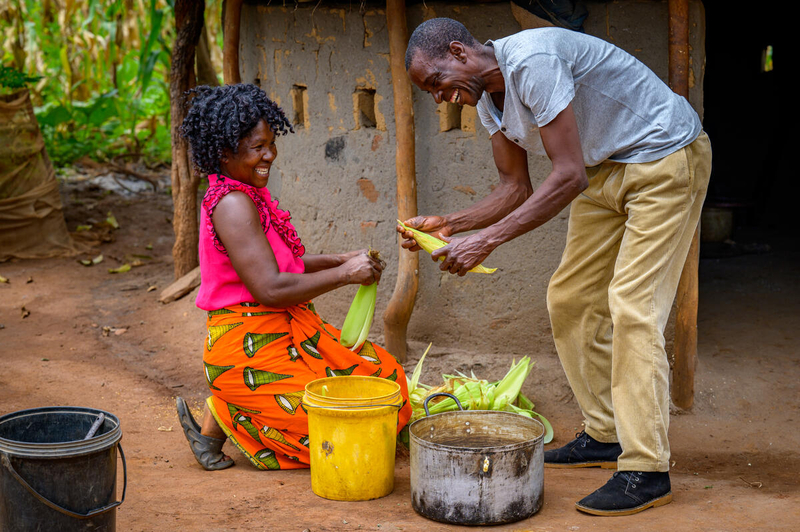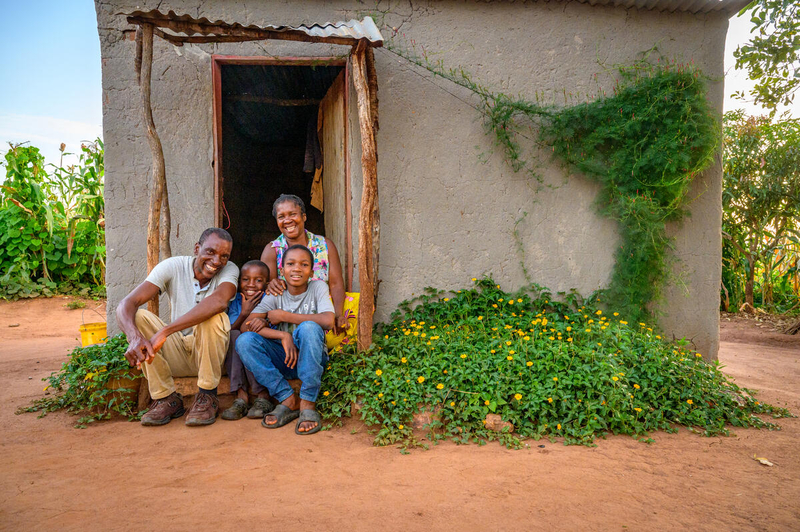A Five-Minute Walk to Water Changed Everything: Charity’s Journey from Poverty to Prosperity

“Before the borehole came, we used to suffer. We didn’t have the time to go to the field and cultivate. Only one person would go and farm, which is why poverty became worse,” says Charity.
Her husband, Moris, worked in the field to try to feed their children, but he couldn’t do it alone. The family struggled to have enough food, which deeply troubled the parents. “We used to have pain in our hearts,” Charity recalls. “For a child to grow, they need to eat.”
But food was not their only concern—safe drinking water was equally vital. The water Charity collected often left the children suffering from diarrhea. The family shared water from a 20-liter (a little more than 5 gallons) bucket for bathing, leaving little or no water for washing clothes or cleaning school uniforms.

In 2022, everything changed when World Vision constructed a borehole less than a five-minute walk from their home. This new water source turned their lives around. Before the borehole became operational, World Vision staff trained the community on basic sanitation and hygiene needs, including the importance of a toilet, bathing shelter, handwashing facility, elevated dishrack, and a rubbish pit to keep surroundings clean.
Now that Charity no longer spends her days walking long distances to fetch water, she can join Moris in the fields. “Because of the water, my children and the family do not go hungry,” she says. She has also started a vegetable garden—growing tomatoes, pumpkins, and greens, helping them diversify their diet. The family has moved from eating just one meal a day to having three nutritious meals daily.
Moris built a kitchen for the family, and access to water allowed him to make bricks for construction. Before, Charity cooked outside in the open; when it rained, they couldn’t light a fire and often went hungry. Now, they have a proper cooking space protected from the weather.

The family has also begun raising animals, which provides additional food and income. Charity has started making baskets from accessible materials and sometimes sells them at local markets. The health issues caused by dirty water have all but disappeared, and the family’s well-being has greatly improved.
“Now we bathe whenever we want. If you find me dirty, then I just want to be dirty,” she laughs. She even puts on makeup and nail polish. People often ask if she’s from a farm or if she’s from Lusaka. Her sons can now attend school dressed in clean uniforms and are no longer teased for their appearance.
This newfound cleanliness and care extend to their home. Charity has embraced lessons on maintaining a clean environment. Her family’s yard is spotless now. “If you came before we had the borehole, you wouldn’t even step in this yard. It was too dirty.”
She has also planted flowers around the home. “For me, a house without flowers is not a house,” she says. From a life of hardship, they have moved to one of thriving, thanks to access to clean water and improved sanitation.